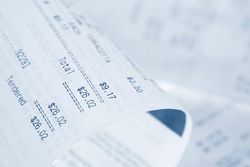3 Useful Tax Planning Tips for Independent Contractors

Though it has its perks, working as an independent contractor comes at a cost—particularly when it comes to taxes. Unlike professionals who have a dedicated employer, freelancers don’t have these payments automatically taken out of their income. If you’re new to self-employment, Darren Katayama CPA LLC—a trusted financial advisor in Kailua-Kona, HI—offers a few tax planning tips to help you prepare for the 2018 season.
A Freelancer’s Guide to Tax Planning
1. Record Your Earnings
It’s crucial that you track and record every payment you receive. While you should get a W-2 from every commercial entity that pays you $600 or more at the beginning of the year, the total earnings may not reflect everything you’re responsible for. By keeping track of your earnings, you can better understand what tax bracket you fall into and estimate what percentage of your income you owe.
2. Track Deductions
Apart from tracking your income, you should also monitor every business-related expense you make. While you can always take the standard deduction, many freelancers find that their business costs offer a higher deduction amount and lower their total responsibility.
 Save receipts and keep detailed records of what you spent on office rent, supplies, software, transportation, and other materials and services that support your business. You can even deduct what you put towards tax return preparation.
Save receipts and keep detailed records of what you spent on office rent, supplies, software, transportation, and other materials and services that support your business. You can even deduct what you put towards tax return preparation.
3. Pay Quarterly Estimated Taxes
If you’re planning for the next tax season, it’s also wise to make estimated quarterly payments to the IRS in advance. In some instances, you may even be subject to a penalty fee if you do not submit them.
To do this, set up an account with the IRS and submit an estimate of your tax responsibility in four-month increments. In addition to your income tax, include your self-employment tax—or the percentage of your income (usually around 8% depending on the year) that covers Social Security and Medicare.
Apart from avoiding potential penalty fees, these estimated payments will make it easier to avoid a big bill when you have to file your next annual return. If you pay more than you need, you can still receive a refund.
When you freelance, expenses can easily shift to the back-burner as you focus on your work. Letting these calculations go by the wayside can result in high bills and penalties. Fortunately, if you’re self-employed in Kailua-Kona, HI, Daren Katayama CPA LLC can assist with all your tax planning needs. Understanding every detail of independent contractor expenses and tax law, this accountant can accurately track your finances, ensure you are compliant with your payments, and help you maximize your deductions. Learn more about their services online or call (808) 329-6635 to schedule an appointment to get ready for the 2018 season.
About the Business
Have a question? Ask the experts!
Send your question

